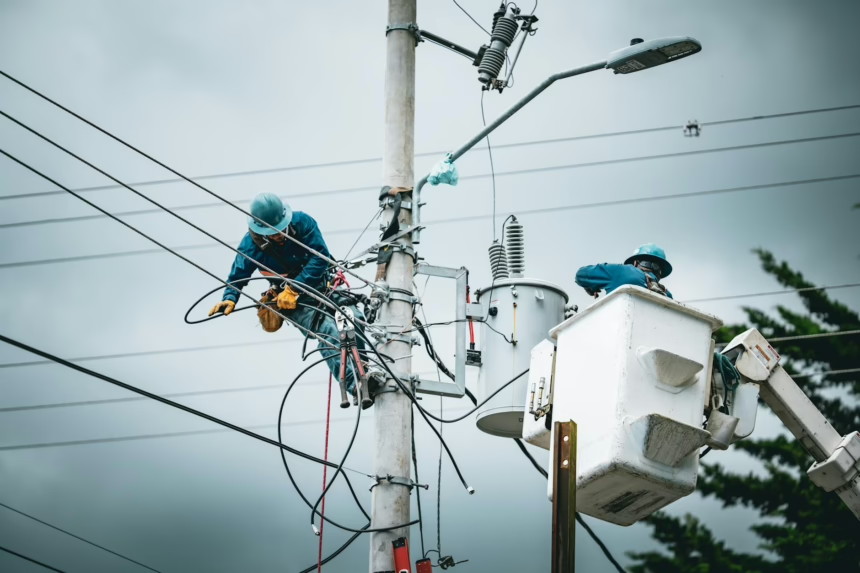New FCC Initiative Aims to Bolster Security and Reliability of Crucial Technology
In an era where reliable and secure telecommunications are the bedrock of our economy and national security, the Federal Communications Commission (FCC) has announced a significant initiative aimed at strengthening the integrity of its Equipment Authorization Program. This program is critical for ensuring that all telecommunications equipment sold and operated in the United States meets established safety and performance standards. The FCC’s recent release, titled “Promoting the Integrity and Security of Telecommunications Certification Bodies, Measurement Facilities, and the Equipment Authorization Program,” outlines a series of steps to enhance oversight and confidence in the devices that power our connected world. For consumers and businesses alike, this means a renewed focus on ensuring the devices they rely on are not only functional but also secure against potential threats.
The Crucial Role of the Equipment Authorization Program
The FCC’s Equipment Authorization Program is the gatekeeper for nearly all electronic devices that emit radio frequency (RF) energy and are marketed in the U.S. This includes everything from your smartphone and Wi-Fi router to more complex industrial and public safety communication systems. The program ensures that these devices comply with FCC regulations, preventing harmful interference with other radio services and protecting consumers from potential hazards. At the heart of this program are Telecommunications Certification Bodies (TCBs) and accredited Measurement Facilities (MFs). TCBs are private organizations accredited by the FCC to grant equipment authorizations, while MFs are laboratories that test equipment to ensure it meets FCC technical requirements.
Strengthening Oversight of Certification Bodies and Facilities
The FCC’s new guidance emphasizes a robust approach to overseeing these crucial entities. According to the FCC’s release, the objective is to “promote the integrity and security of Telecommunications Certification Bodies, Measurement Facilities, and the Equipment Authorization Program.” This involves a more rigorous examination of TCBs and MFs to ensure their continued competence and adherence to established procedures. The FCC is committed to maintaining the credibility of its program by actively monitoring the performance of these third-party entities. This proactive stance aims to prevent any potential shortcuts or lapses in testing and certification that could compromise the security or reliability of telecommunications equipment entering the U.S. market. The release signals an intention to increase scrutiny and accountability across the board.
Addressing Emerging Security and Interference Concerns
In today’s rapidly evolving technological landscape, new challenges consistently emerge. The FCC’s initiative appears to be a direct response to these evolving threats, including concerns about sophisticated interference and the potential for malicious actors to exploit vulnerabilities in telecommunications equipment. By reinforcing the foundation of the Equipment Authorization Program, the FCC seeks to build greater resilience against these threats. This includes ensuring that testing methodologies are up-to-date and capable of identifying potential security weaknesses. The focus on integrity suggests a broader concern for the overall security posture of our telecommunications infrastructure, from the microchips within devices to the networks they connect to.
Balancing Innovation with Essential Safeguards
While the FCC’s efforts are geared towards enhanced security, it’s important to consider the balance between stringent oversight and fostering innovation. Overly burdensome regulations could potentially stifle the development of new technologies and increase costs for manufacturers, which could ultimately be passed on to consumers. However, the FCC’s stated goal is not to impede progress but to ensure that innovation occurs within a framework of robust safety and security standards. The success of this initiative will likely hinge on the FCC’s ability to implement these enhanced oversight measures efficiently and effectively, without creating unnecessary barriers for legitimate businesses. The agency aims to ensure that the rapid pace of technological advancement does not come at the expense of fundamental network integrity.
What This Means for Consumers and Businesses
For consumers, this FCC initiative should translate into greater confidence in the telecommunications devices they purchase and use daily. It signifies a commitment from the government to ensure that these devices are not only functional but also as secure as possible. For businesses, particularly manufacturers and importers of telecommunications equipment, it underscores the importance of rigorous internal quality control and strict adherence to FCC standards. Companies that already maintain high standards of testing and certification will likely find this initiative aligns with their existing practices, while others may need to reassess and potentially strengthen their compliance protocols to meet the FCC’s elevated expectations. Staying informed about FCC updates and guidelines will be crucial for navigating this evolving regulatory landscape.
Key Takeaways for a Securely Connected Future
* The FCC is enhancing its oversight of Telecommunications Certification Bodies and Measurement Facilities to ensure the integrity of the Equipment Authorization Program.
* This initiative aims to bolster the security and reliability of telecommunications equipment sold and used in the United States.
* The FCC’s focus is on preventing harmful interference and mitigating potential security vulnerabilities in electronic devices.
* This effort seeks to balance the need for innovation with essential safeguards for our telecommunications infrastructure.
* Consumers can expect increased confidence in the safety and security of their devices, while businesses must remain diligent in their compliance efforts.
Staying Vigilant in the Digital Age
As technology continues to advance at an unprecedented pace, maintaining the security and reliability of our telecommunications systems remains a paramount concern. The FCC’s commitment to strengthening its Equipment Authorization Program is a positive step in this direction. It is imperative for all stakeholders, from regulatory bodies to manufacturers and end-users, to remain vigilant and engaged in ensuring that our connected world is built on a foundation of trust and security.
References
* FCC Recent Releases – Guide (Official FCC announcement detailing the initiative)


